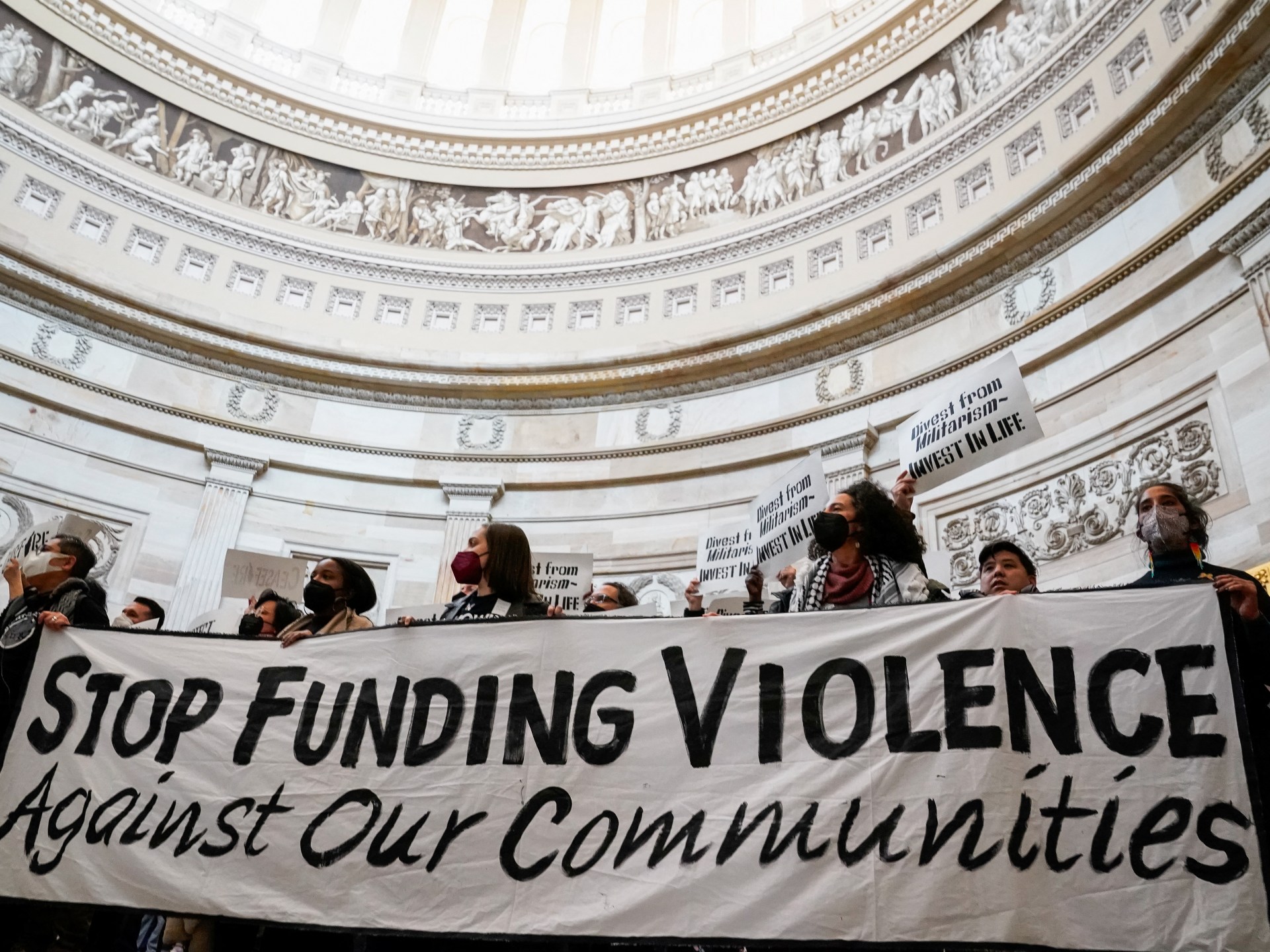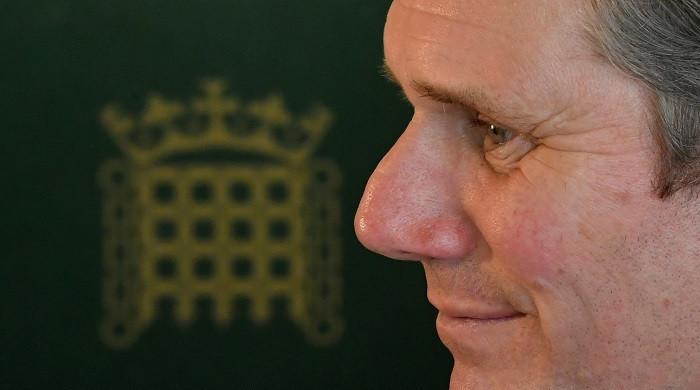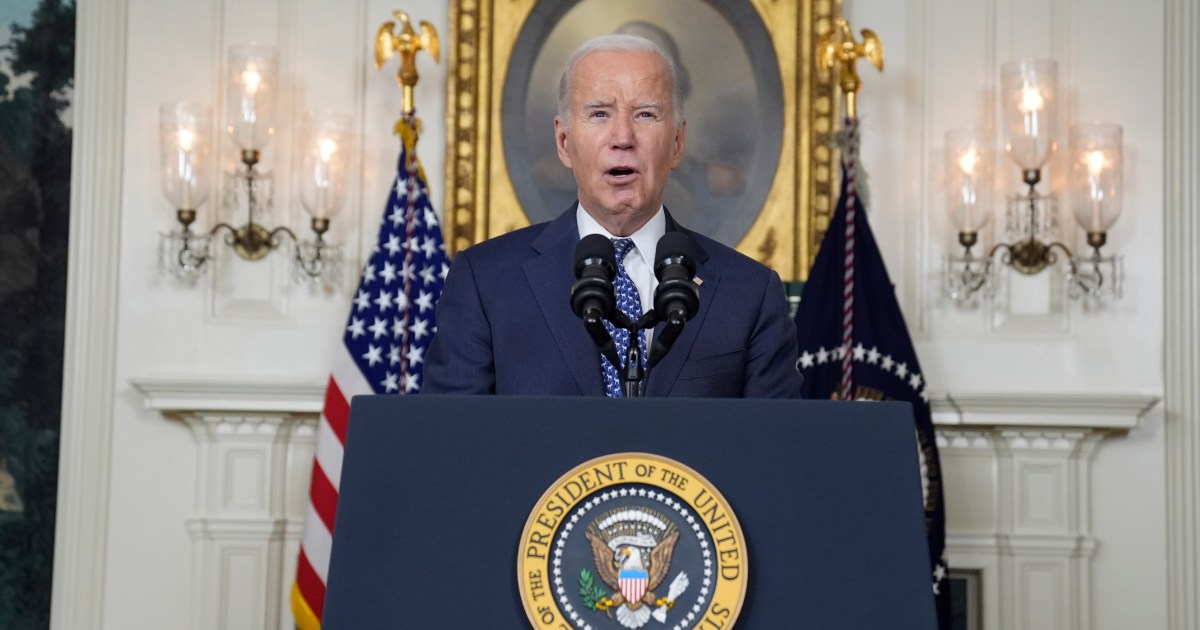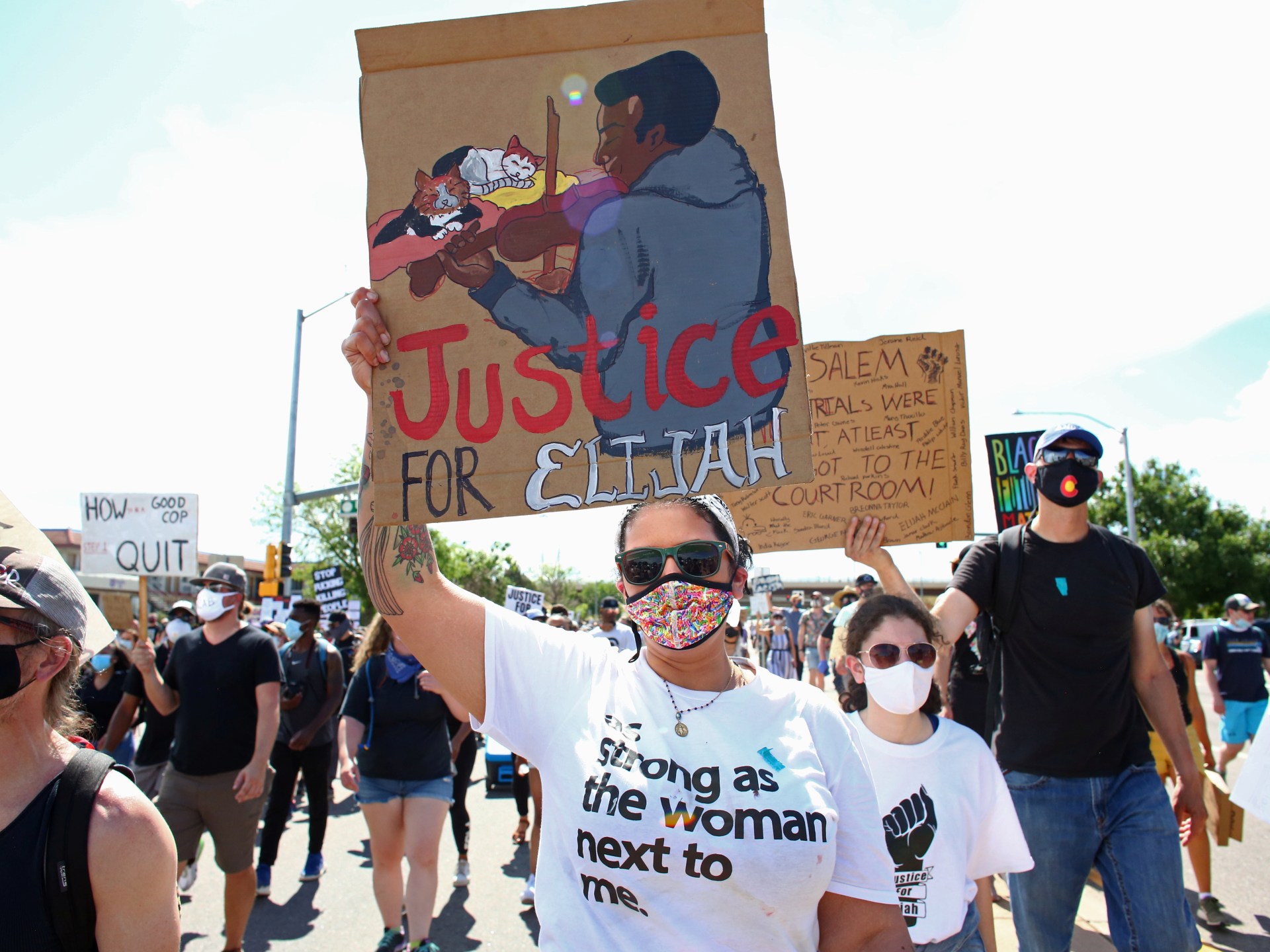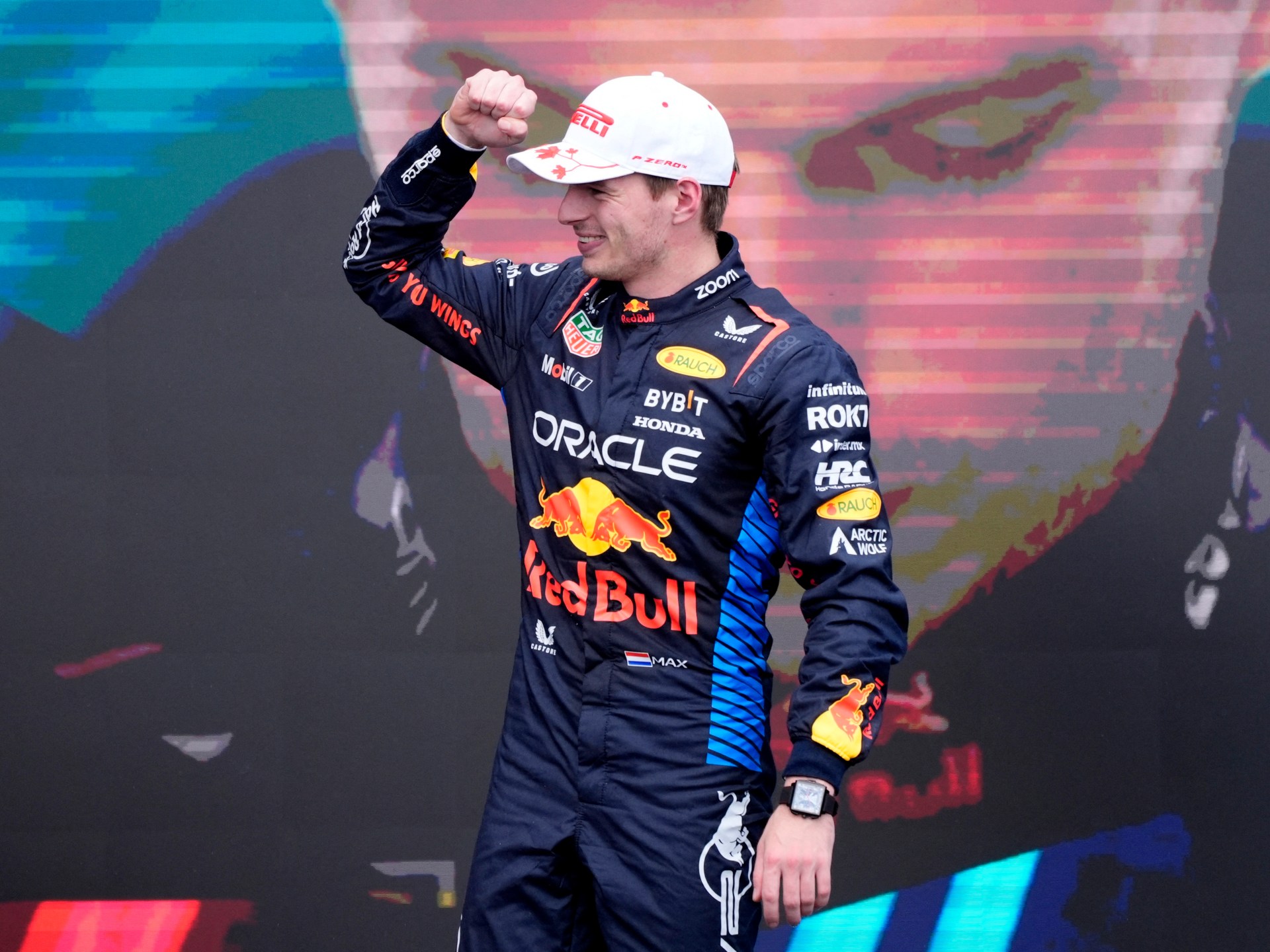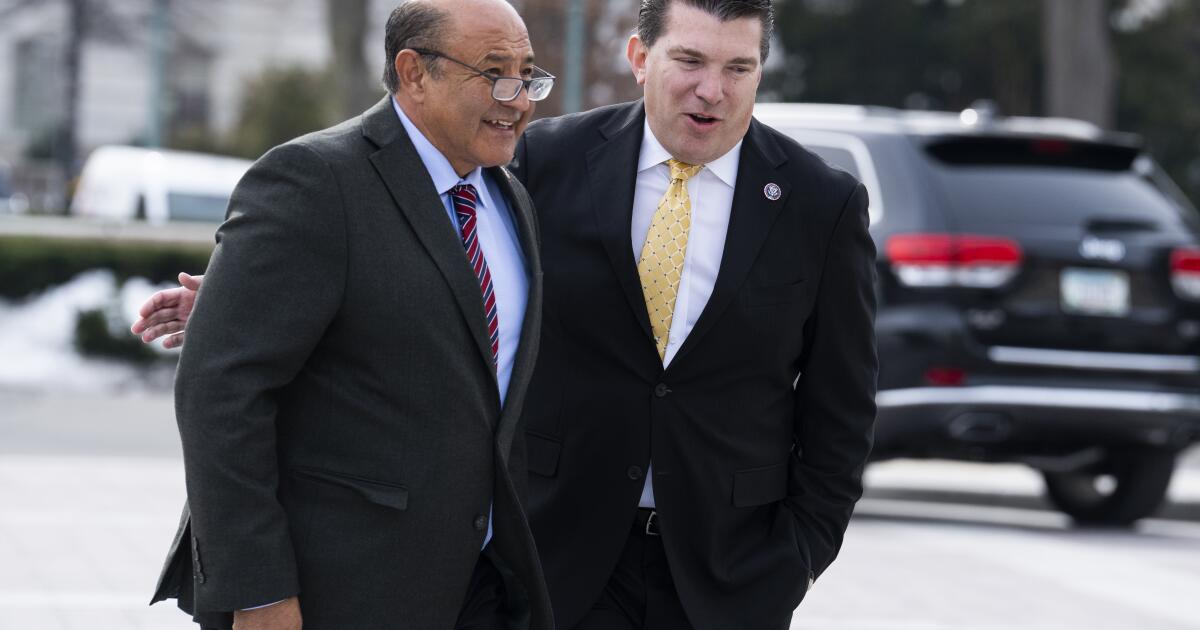MEXICO CITY — A protest march called over the weekend to highlight the concerns of Mexico's Generation Z has dramatized deep political divisions that extend far beyond the needs of young Mexicans.
The largely peaceful demonstration in central Mexico City on Saturday culminated in several hours of clashes as small groups of protesters fought with phalanxes of riot police deployed to protect the National Palace in Mexico City's central square, or zócalo.
After the protests, Mexico's leftist president Claudia Sheinbaum accused right-wing opponents of hijacking the demonstration to provoke unrest and defame her government.
“A march that was supposedly called against violence used violence,” Sheinbaum told reporters Monday.
But opposition leaders and other critics said the march reflected deep concern about alleged cartel infiltration of the government and accused police of mistreating young protesters.
Among those noting Mexico's chaotic scenes was President Trump, who, in comments to reporters from the Oval Office on Monday, again raised the provocative specter of U.S. attacks on cartel targets in Mexico. The country is a major production site for fentanyl, amphetamines and other synthetic drugs destined for the US market, and a transportation corridor for South American cocaine.
“I looked at Mexico City over the weekend. There are big problems there,” Trump said. “Let me put it this way: I am not happy with Mexico.”
Asked if he would contemplate U.S. attacks on cartel targets in Mexico, Trump responded: “Would you launch attacks in Mexico to stop the drugs? That's fine with me. Whatever we have to do to stop the drugs.”
Trump has accused Mexico of being “governed by cartels,” although he has praised Sheinbaum as a “very brave woman.”
Sheinbaum has denied that cartels control Mexico. He has maintained a cooperative attitude with Trump on two controversial binational issues: drug trafficking and tariffs, but has said that Mexico will not give up its sovereignty and will accept US attacks.
Saturday's march, one of many similar protests across Mexico that day, was originally called in support of Generation Z, after similar demonstrations in Nepal and Morocco. Young people around the world have denounced the lack of economic and educational opportunities.
But the demonstration in Mexico City became primarily a march against what many participants called the leftist “narco-government” of Sheinbaum and his ruling Morena party.
Many protesters held up signs that read: “I am Carlos Manzo,” in honor of the mayor of the western city of Uruapan, who was killed this month in a shooting that authorities blamed on organized crime.
Manzo had accused Sheinbaum's government of coddling criminals. Supporters of their so-called “White Hat” movement, after the signature of the popular mayor hat – Tens of thousands took to the streets of Uruapan and other cities in the state of Michoacán this month to demand an offensive against organized crime. Supporters of the growing movement were also important participants in Saturday's march in Mexico City.
After the march, Sheinbaum's opponents accused his government of repressing dissent.
“They brutalized young people who only want a better Mexico,” accused Alejandro Moreno, president of the opposition Institutional Revolutionary Party. “They beat them because they are afraid. They know that the power of an organized people is stronger than a cowardly narco-regime.”
Mexican authorities denied allegations of brutality and said at least 60 police officers were injured.
A small minority of protesters, many of them wearing balaclavas, threw stones, bottles, fireworks and other makeshift weapons at police. Police used physical force and bursts of tear gas to drive them back. Each side blamed the other for causing the melee.
“They wanted to generate this idea: 'Chaos in Mexico!' Sheinbaum accused, pointing out how images of the clashes received widespread national and international attention in the press and social media.
The president called for an investigation into the violence she said was financed by her opponents. He promised that authorities would also investigate any allegations of police brutality. The vast majority of protesters, he said, were not violent.
Authorities said 17,000 protesters participated in Saturday's demonstration. The opposition said the figure was much higher.
Opponents of Sheinbaum's government have promised additional protests. But many experts doubt that a deeply fractured opposition can do much to loosen Morena's grip on power.
Sheinbaum's predecessor and mentor, former President Andrés Manuel López Obrador, faced much larger street demonstrations during his term, along with accusations of ties to drug traffickers. But neither seemed to make a dent in his widespread popularity.
Polls have shown that Sheinbaum, who just completed the first year of a six-year term, has approval ratings above 70%. His Morena party, with strong support from poor and working-class Mexicans who have benefited from minimum wage increases and social welfare programs, maintains firm control of Congress, the courts and most state chambers across Mexico.
Security remains the top concern for most Mexicans, polls show, even as the president has touted declines in homicides and other violent crimes. Sheinbaum has launched a crackdown on organized crime that has resulted in the arrest of thousands of suspects, including dozens expelled to face justice in US courts.
Special correspondent Cecilia Sánchez Vidal in Mexico City contributed to this report.


